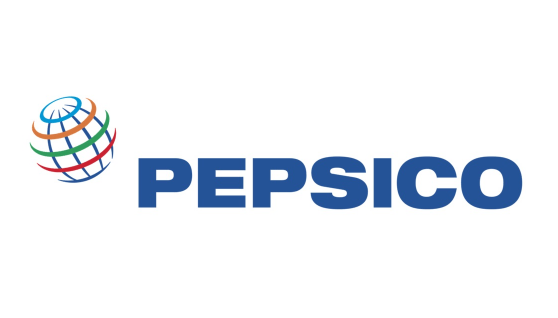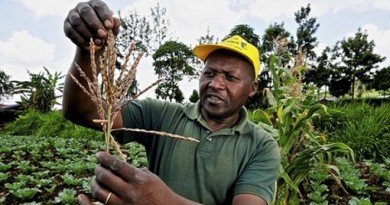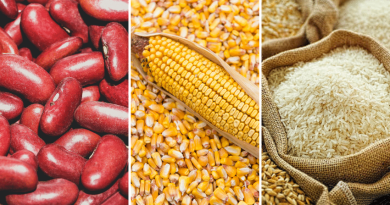PepsiCo launches Positive Agriculture Outcomes Accelerator projects to support farmer livelihoods
PepsiCo has backed eight new innovation projects in nine countries as part of the third year of its global agriculture program, the Positive Agriculture Outcomes (PAO) Accelerator. PepsiCo’s ongoing investment is to advance the company’s pep+ (PepsiCo Positive) goal while addressing some of the most pressing issues confronting agriculture today.
PepsiCo’s PAO Accelerator provides funding for ag-tech start-ups that have proven products or technology with the ability to scale, as well as co-investment to local farming communities to advance diverse and results-driven Positive Agriculture projects. With the help of innovations this year, farmers in Australia, Colombia, Egypt, India, Iraq, Pakistan, Poland, Romania, and the United Kingdom will be involved in building resilience through climate-related analysis, enhancing soil health, and fortifying agricultural resilience.
Margaret Henry, Vice President, Sustainable and Regenerative Agriculture at PepsiCo, stated, “We can’t motivate systemic change on our own, and our PAO Accelerator continues to provide a forum for farming communities to bring forth ideas and opportunities, and receive the funding needed to get promising innovation off the ground.” “With this latest round of projects, we’re not only fostering this powerful network of innovators across global farmland, but growing closer to achieving a more regenerative future, with farmers’ insight at the forefront.”
One of the initiatives scheduled for 2023 involves testing and validating soil health management techniques with Australian grain growers in an effort to lower greenhouse gas emissions on farms. Financial help will be provided to Colombia in order to install spray irrigation systems that use less water, hence improving the quality and output of potato crops. Additionally, funding will facilitate the connection between European organizations interested in supporting regenerative solutions and local farmland managers who can produce quantifiable, sustainable results. This will be done in partnership with 3Keel, a landscape innovation firm based in the UK.
According to Tom Curtis, Director of 3Keel Group Ltd., “investing in innovative agriculture projects is a key action in combatting the evolving climate crisis and setting farmers around the world, up for long-term success.” “Support from PepsiCo’s PAO Accelerator will powerfully enable our team to work with local farmers across Europe to further broker the partnerships needed to accelerate climate action on the ground to strengthen agricultural supply chains for the long-term.”
Since its inception in 2021, the PAO Accelerator has provided funding for a wide range of initiatives, including enhancing soil health, creating kilns to convert agricultural waste into fertilizer, and implementing effective irrigation systems in response to growing droughts.
“One of the most important things we can do to address the changing climate crisis and position farmers globally for long-term prosperity is to invest in innovative agricultural projects,” said Tom Curtis, Director of 3Keel Group Ltd. “Support from PepsiCo’s PAO Accelerator will powerfully enable our team to work with local farmers across Europe to further broker the partnerships needed to accelerate climate action on the ground to strengthen agricultural supply chains for the long-term.”
The PAO Accelerator was established in 2021 and has since funded a wide range of projects, including constructing kilns to convert agricultural waste into fertilizer, enhancing soil health, and implementing effective irrigation systems in response to growing drought.
PepsiCo’s Positive Agriculture agenda, a component of its pep+ transformation, places a high priority on investment, innovation, and strong cooperation with our farming partners in order to make an impact globally. The scalable results and continuous investments in agricultural innovation made possible by PepsiCo’s PAO Accelerator support the company’s objectives, which include improving the lives of over 250,000 people in its agricultural supply chain, sourcing 100% of its essential ingredients sustainably, and expanding the adoption of regenerative farming practices across 7 million acres by 2030.




